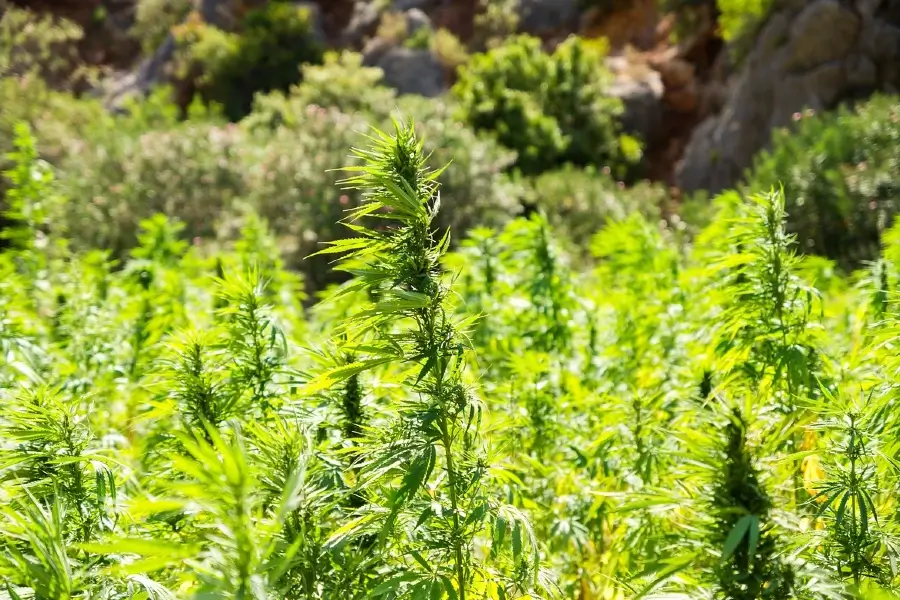Half of individuals who used cannabis for medical purposes decreased their consumption of opioids. There is some evidence that suggests that the use of cannabis for medical purposes may be connected with a decrease in the consumption of opioids; however, the evidence is not conclusive, and other studies have shown contradictory results.
According to the findings of a study conducted in 2023 by the New York State Department of Health, receiving medical cannabis for thirty days or more was connected with a considerable reduction in the daily opioid dosage for patients suffering from chronic pain. The reduction ranged from forty-seven percent to fifty-one percent.
Additional studies of high quality are required to demonstrate a conclusive cause-and-effect link.
Other studies have also demonstrated the possibility of linkages between the use of cannabis for medical purposes and a reduction in the usage of opioids for the management of pain.
Discreet Results and the Need for Additional Research: It is essential to remember that not all research demonstrates such a direct correlation. According to the findings of some studies, medical cannabis may not be helpful for everyone in reducing opioid dependence. Additional studies of high quality are required to demonstrate a conclusive cause-and-effect link.
Possible Reasons for Reduction Although there is ongoing discussion regarding the advantages and disadvantages of using cannabis for medical purposes, one area in which it may prove to be particularly helpful is in lowering the amount of opioids that are used. There is a high risk of addiction and overdose associated with opioids, even though they are a class of medications that are frequently prescribed for pain management.
It has been demonstrated that medical cannabis can provide relief from pain as well as other symptoms for a wide variety of diseases.
The opioid epidemic has developed into a significant public health disaster in many regions of the world, with thousands of deaths being determined to be the result of opioid overdoses each year.
On the other hand, it has been demonstrated that medical cannabis can provide relief from pain as well as other symptoms for a wide variety of diseases. The symptoms that fall under this category include spasticity, neuropathic pain, chronic pain, and nausea and vomiting connected to chemotherapy.
As a result of its ability to provide an alternate method of pain management, medical cannabis may be able to assist specific individuals in decreasing their consumption of opioids or possibly wholly removing them from their lives.
There are several hypotheses concerning how medical cannabis could accomplish this objective. There is a potential that how cannabis and opioids treat pain are distinct from one another. In contrast to cannabis, which modulates pain perception by interacting with the endocannabinoid system of the body, opioids suppress pain signals by acting on the central nervous system. Patients may be able to receive better pain relief with fewer dosages of opioids if they combine these two treatments.
Some individuals may continue to use opioids to avoid experiencing withdrawal symptoms.
However, there is also the possibility that medicinal cannabis could help manage the symptoms of opioid withdrawal. Suppose an individual quits taking opioids after having used them consistently for some time. In that case, they may experience various unpleasant symptoms, including nausea, vomiting, diarrhea, and muscle aches.
These symptoms can be challenging to control, and as a result, some individuals may continue to use opioids to avoid experiencing withdrawal symptoms. Cannabis, on the other hand, has been demonstrated to be effective in alleviating some of these symptoms, which makes it simpler for individuals to shift away from opioids.
There are, of course, possible hazards involved with the use of cannabis for medical purposes, such as the possibility of developing an addiction to the substance and the possibility of experiencing adverse side effects. On the other hand, medical cannabis may provide a safer and more effective alternative to opioids for people who are suffering from certain conditions.
When you are battling with opioid dependence, it is important to discuss potential treatment alternatives with your physician.
With the ongoing research in this field, it will be essential to conduct a thorough analysis of the advantages and disadvantages of using cannabis for medical purposes, as well as to formulate guidelines that are founded on evidence for its application in the treatment of pain.
Considerations of Vital Importance:
Cannabis, for medical purposes, is not a treatment for opioid dependence, and its usage should not be undertaken without first consulting a qualified medical practitioner.
To effectively manage chronic pain or opioid use disorder, it is essential to collaborate with a medical professional to devise a specific treatment plan that may include a combination of medicine, therapy, and other measures.
It is a promising field of research to investigate whether or not medical cannabis has the potential to assist in reducing the usage of opioids. Nevertheless, additional proof is required, and this is not a solution that can be used universally. When you are battling with opioid dependence, it is important to discuss potential treatment alternatives with your physician. One of these choices may be medicinal cannabis, depending on the laws in your state.
